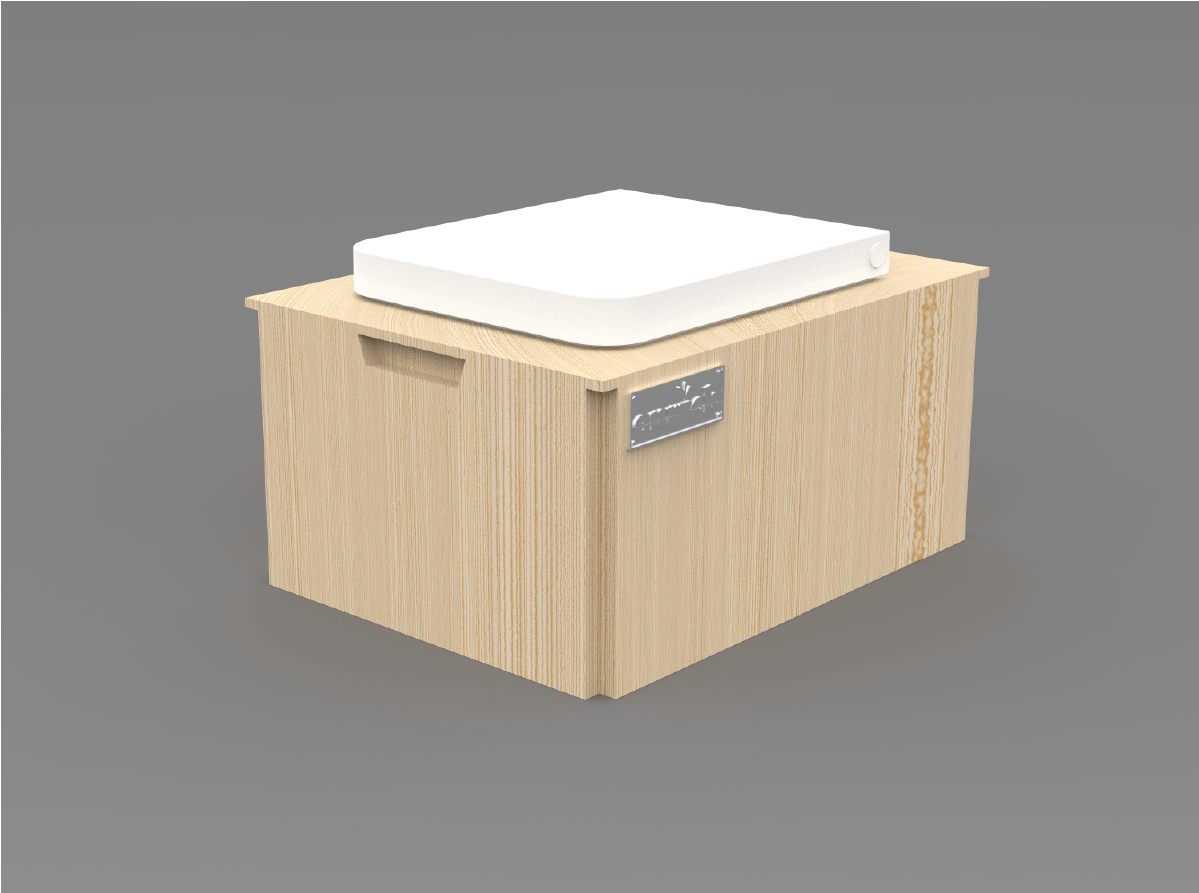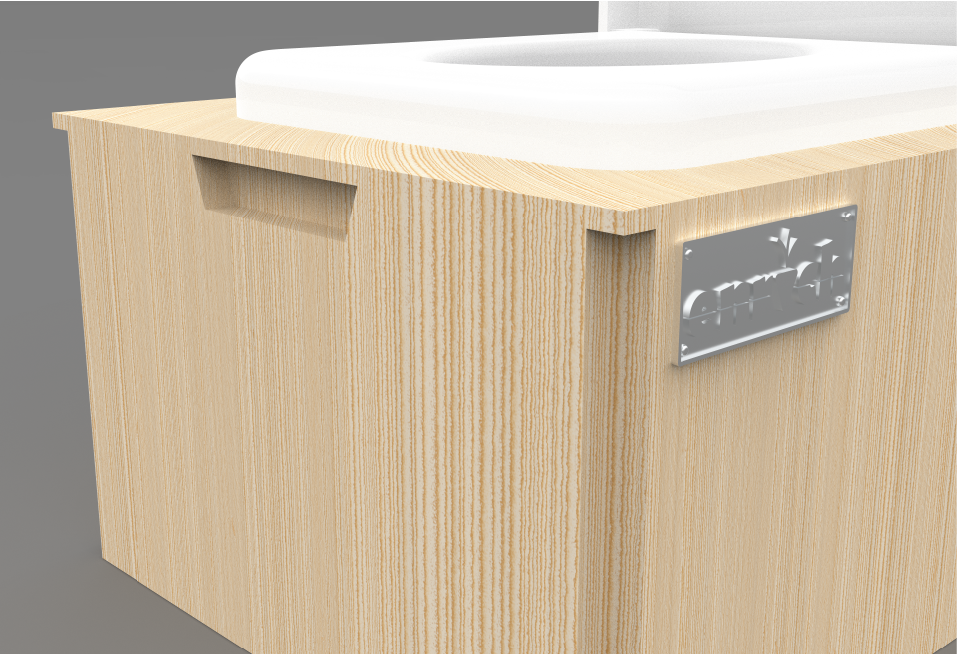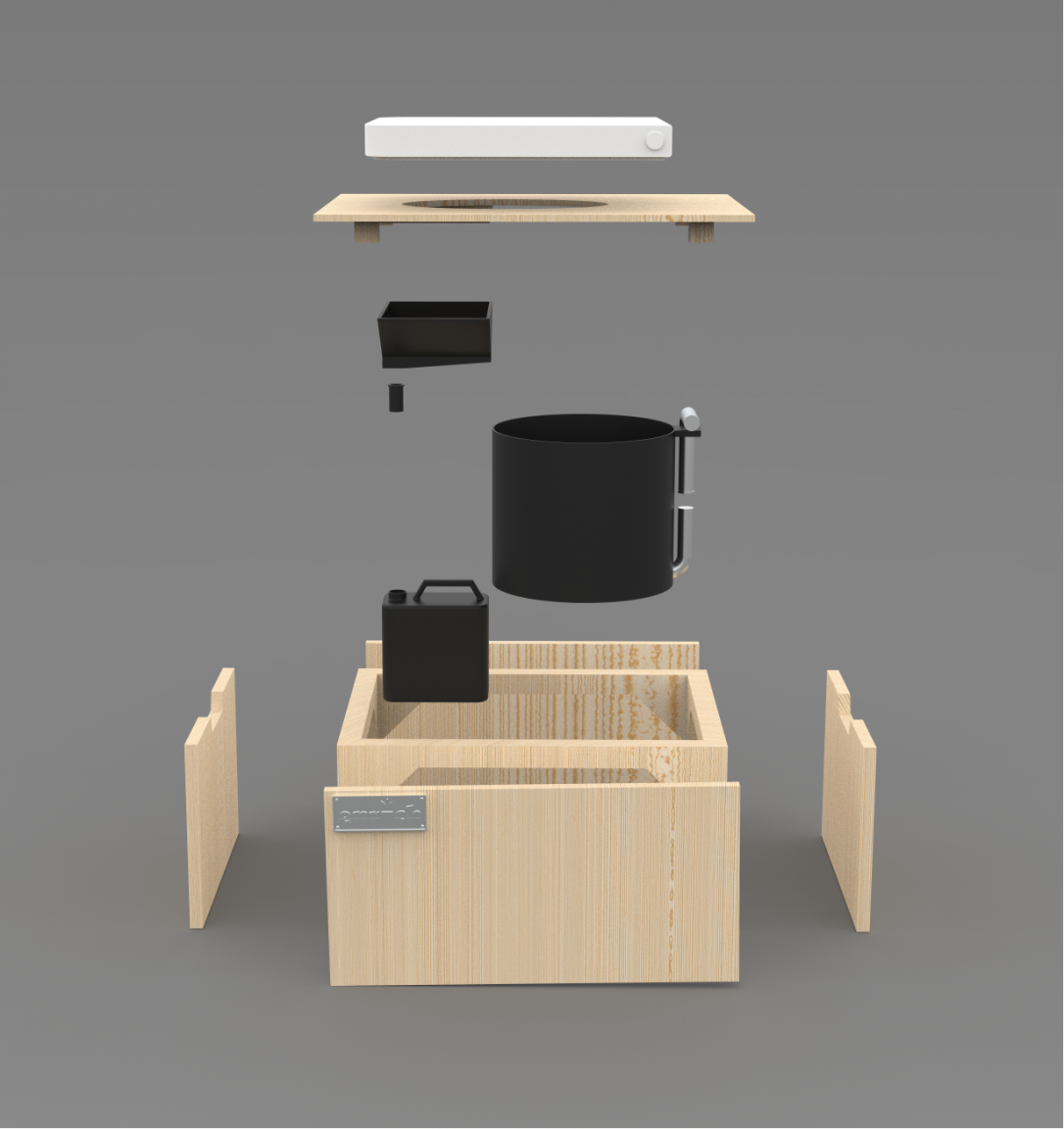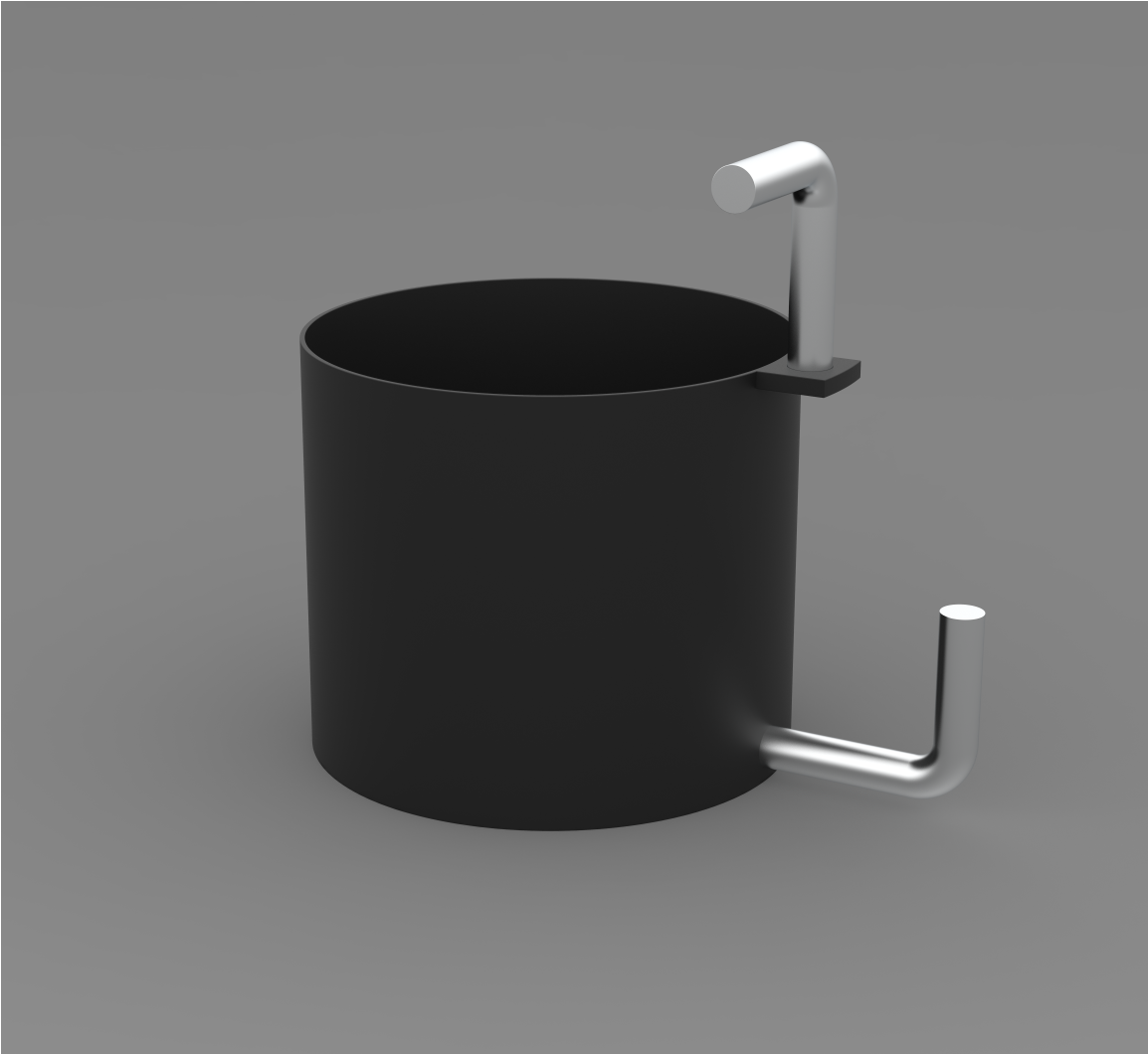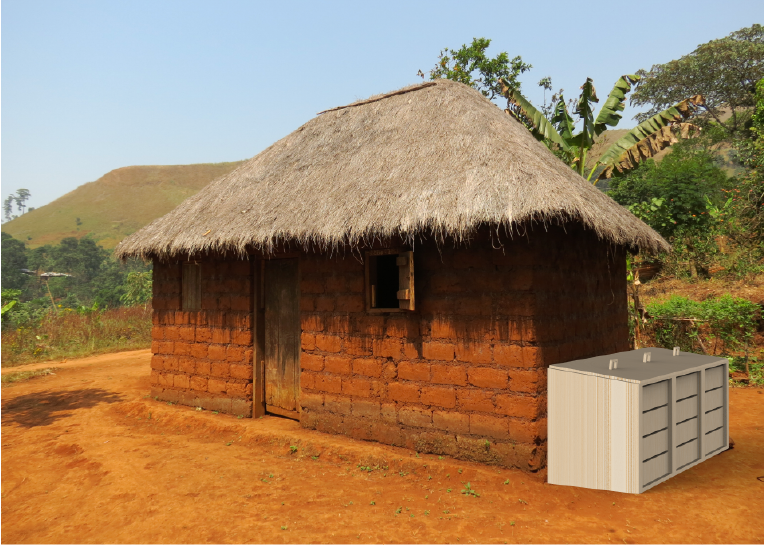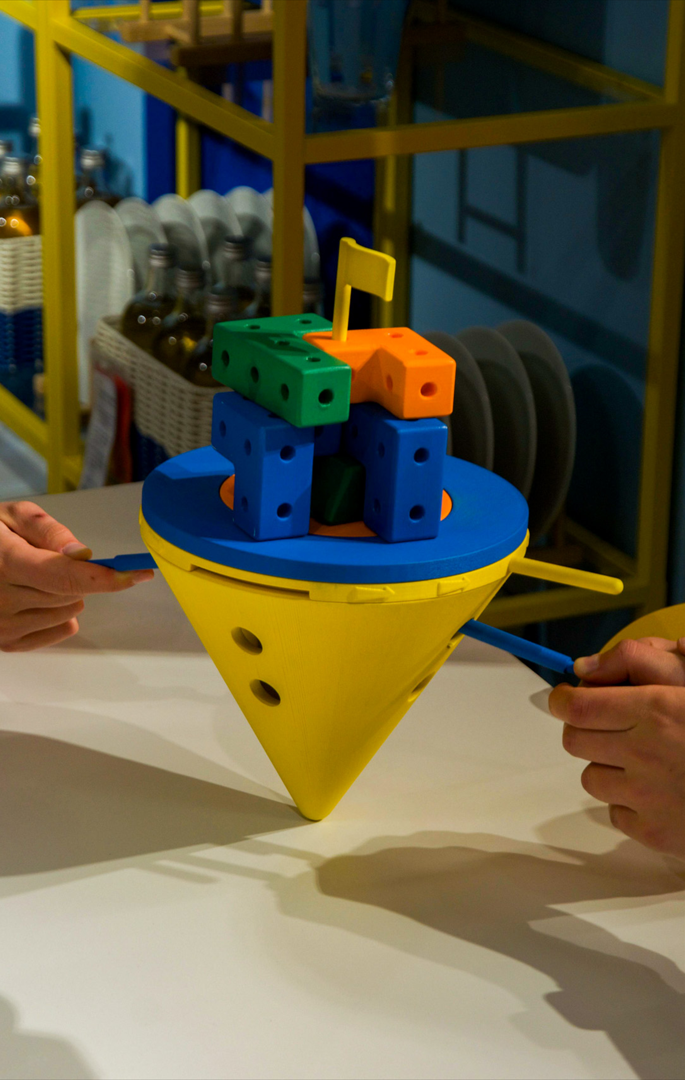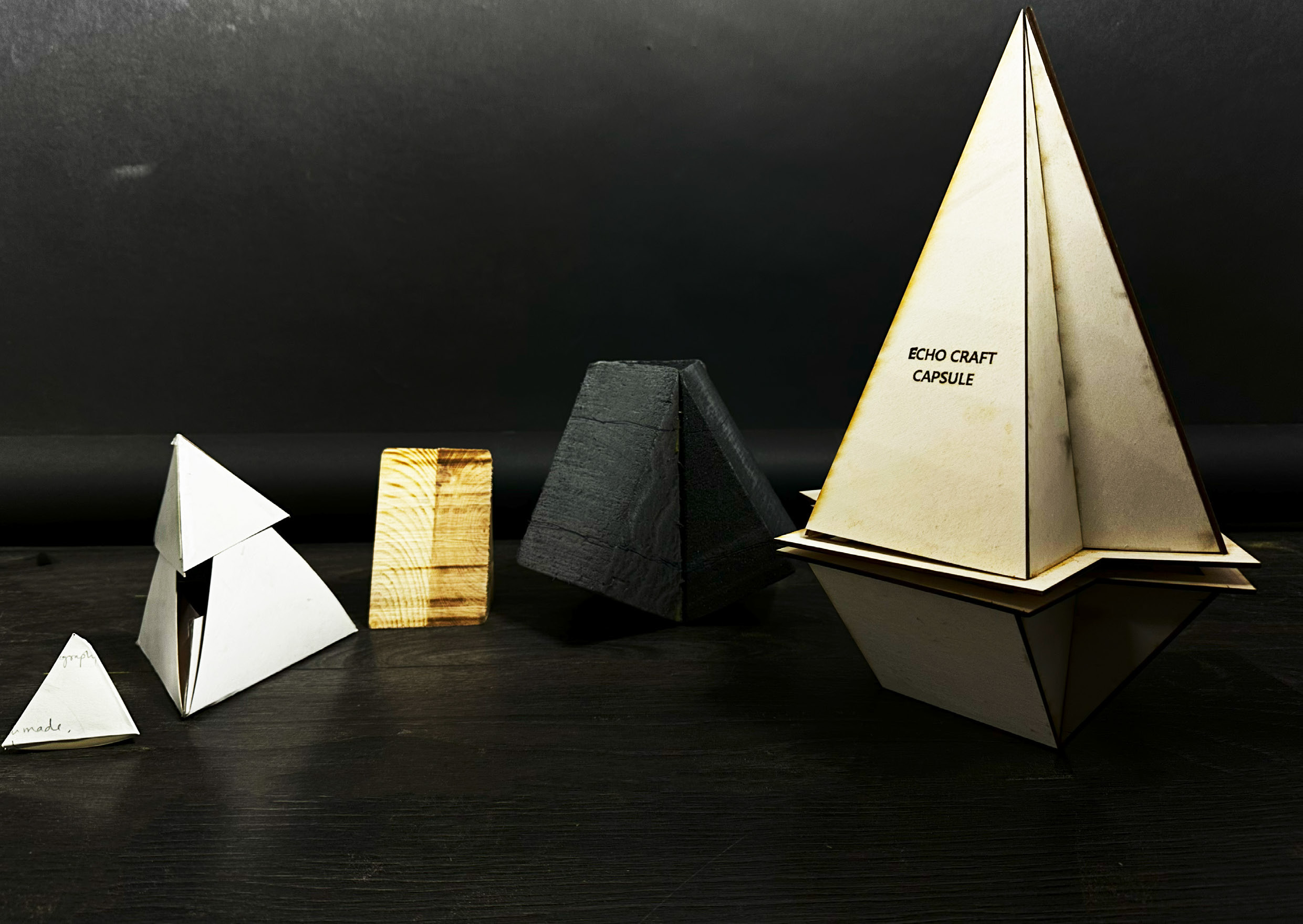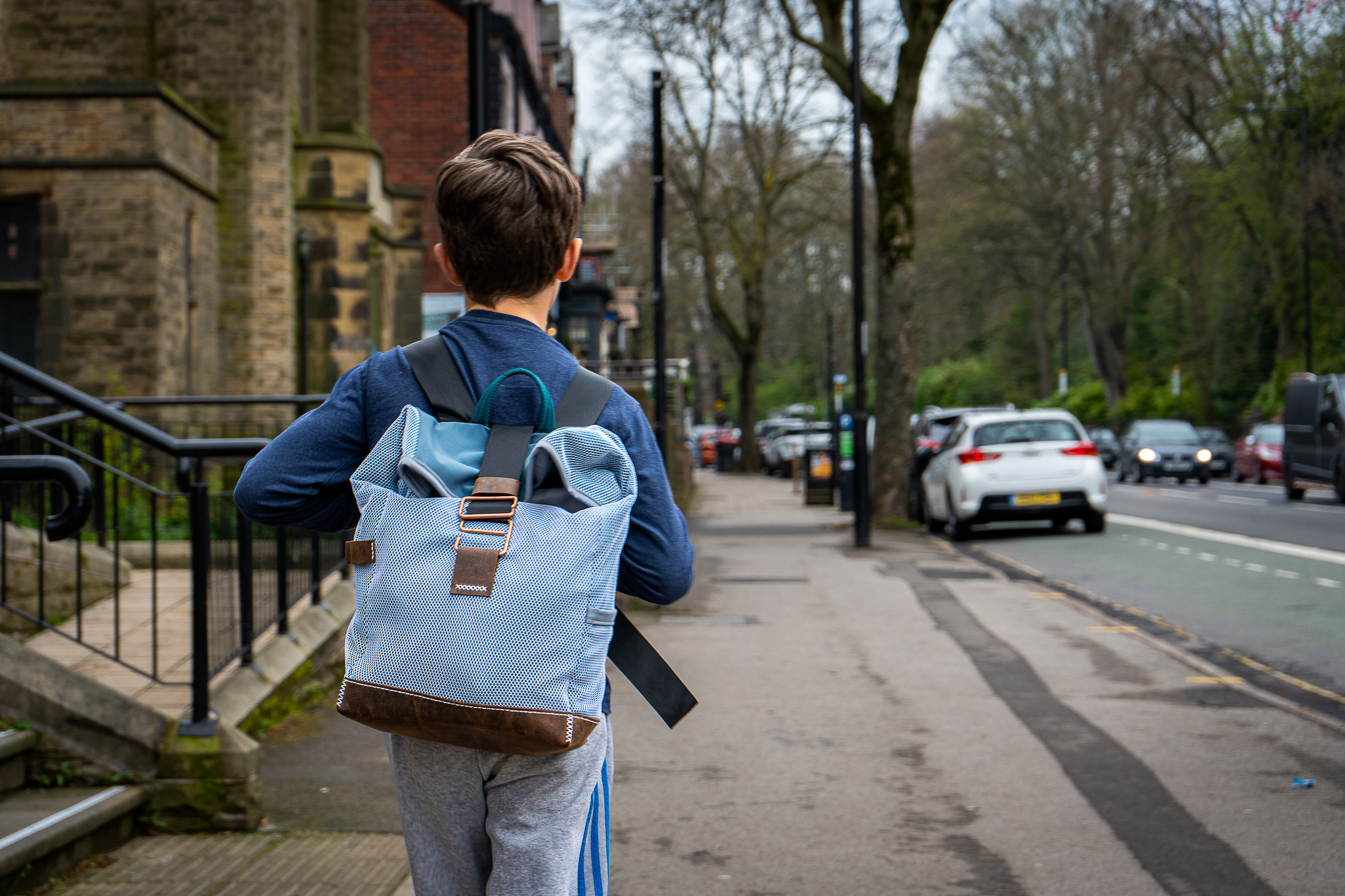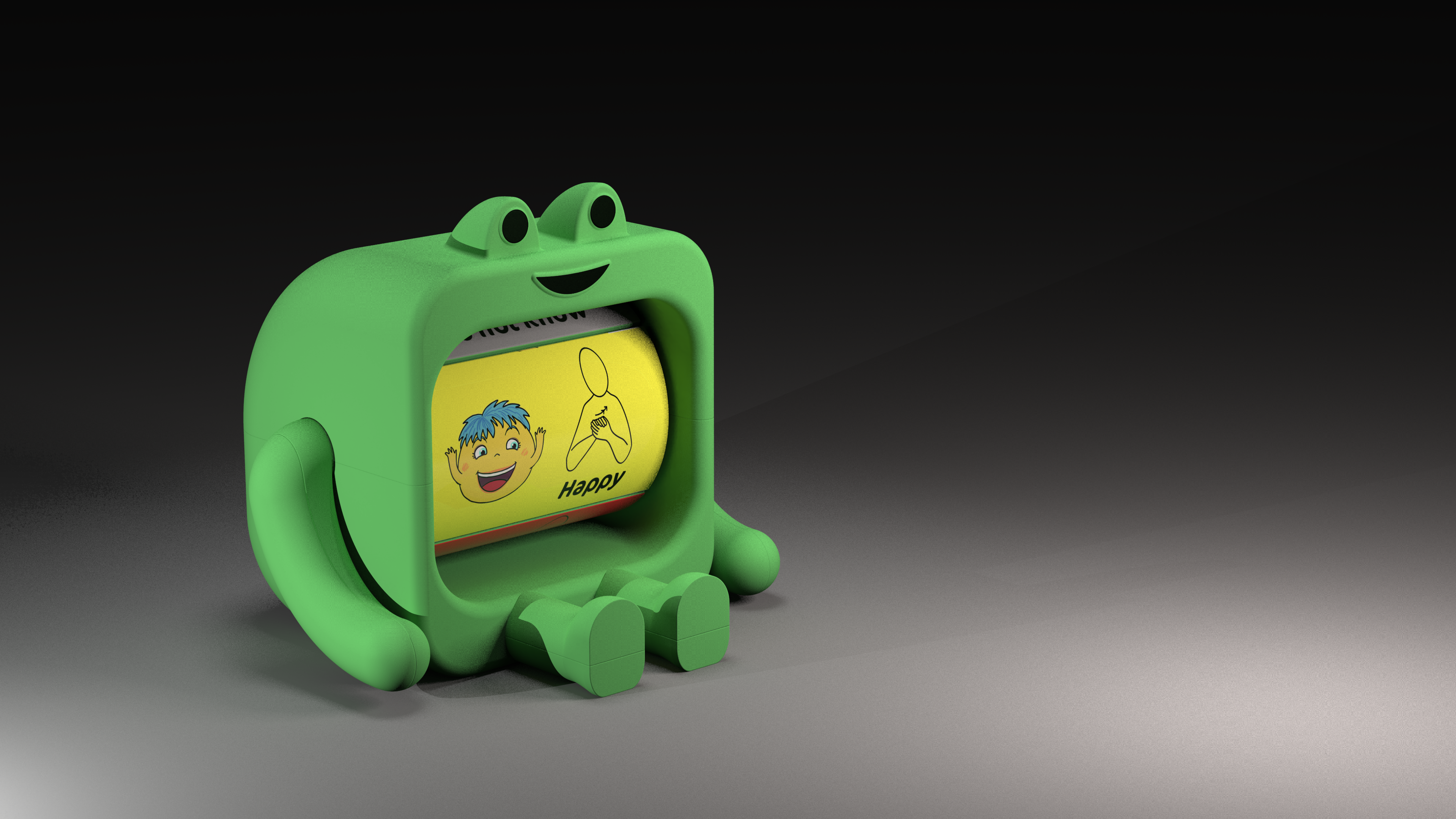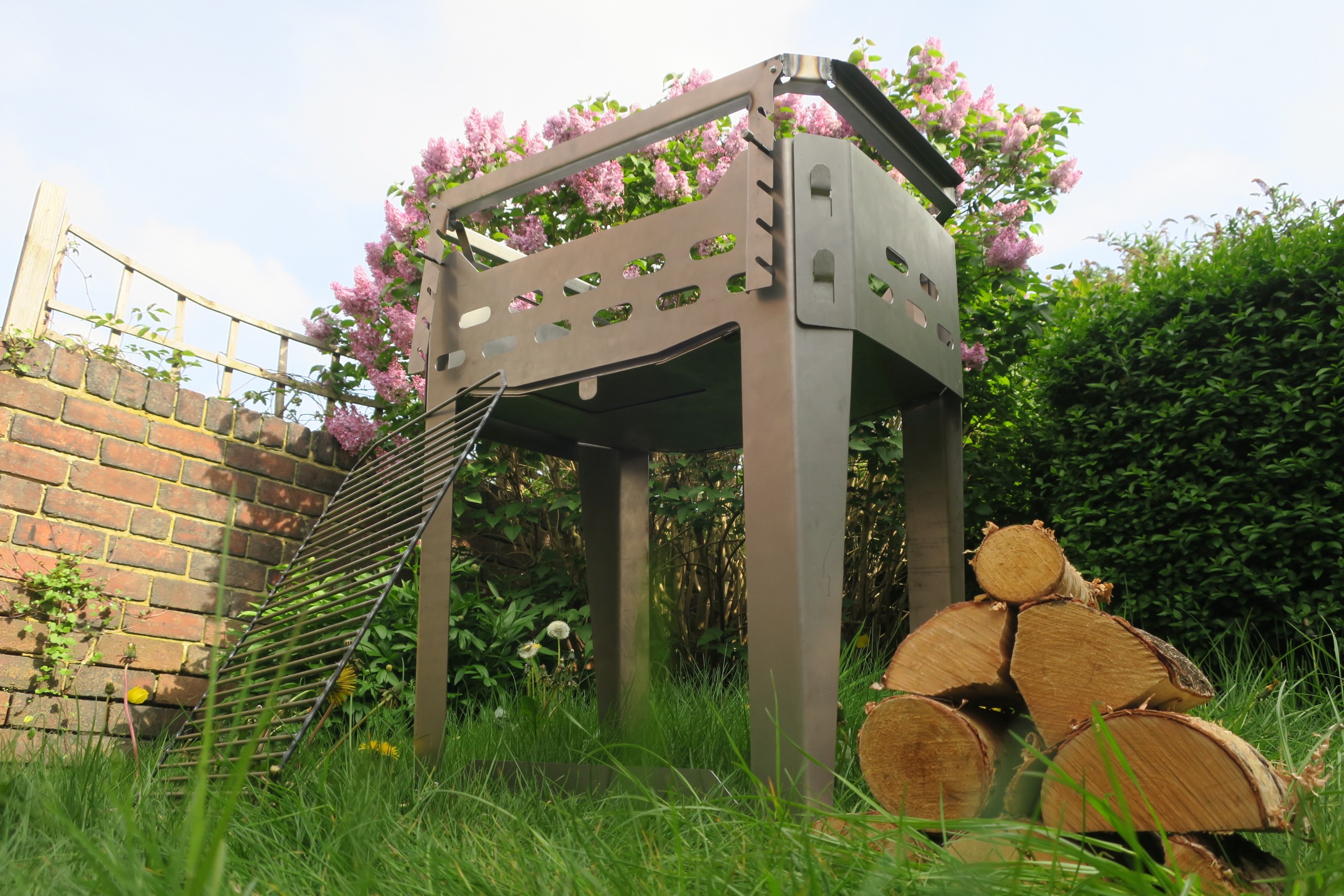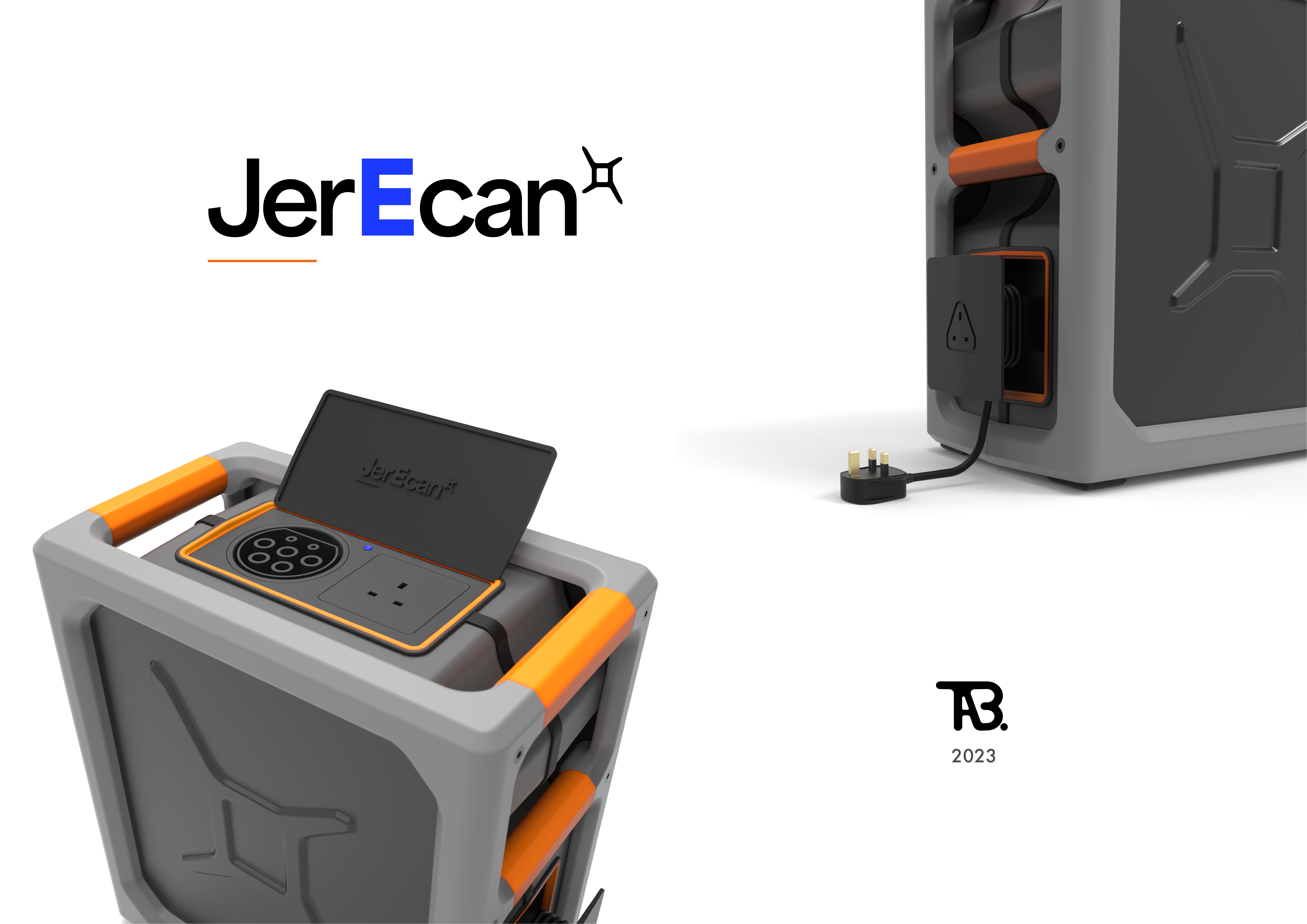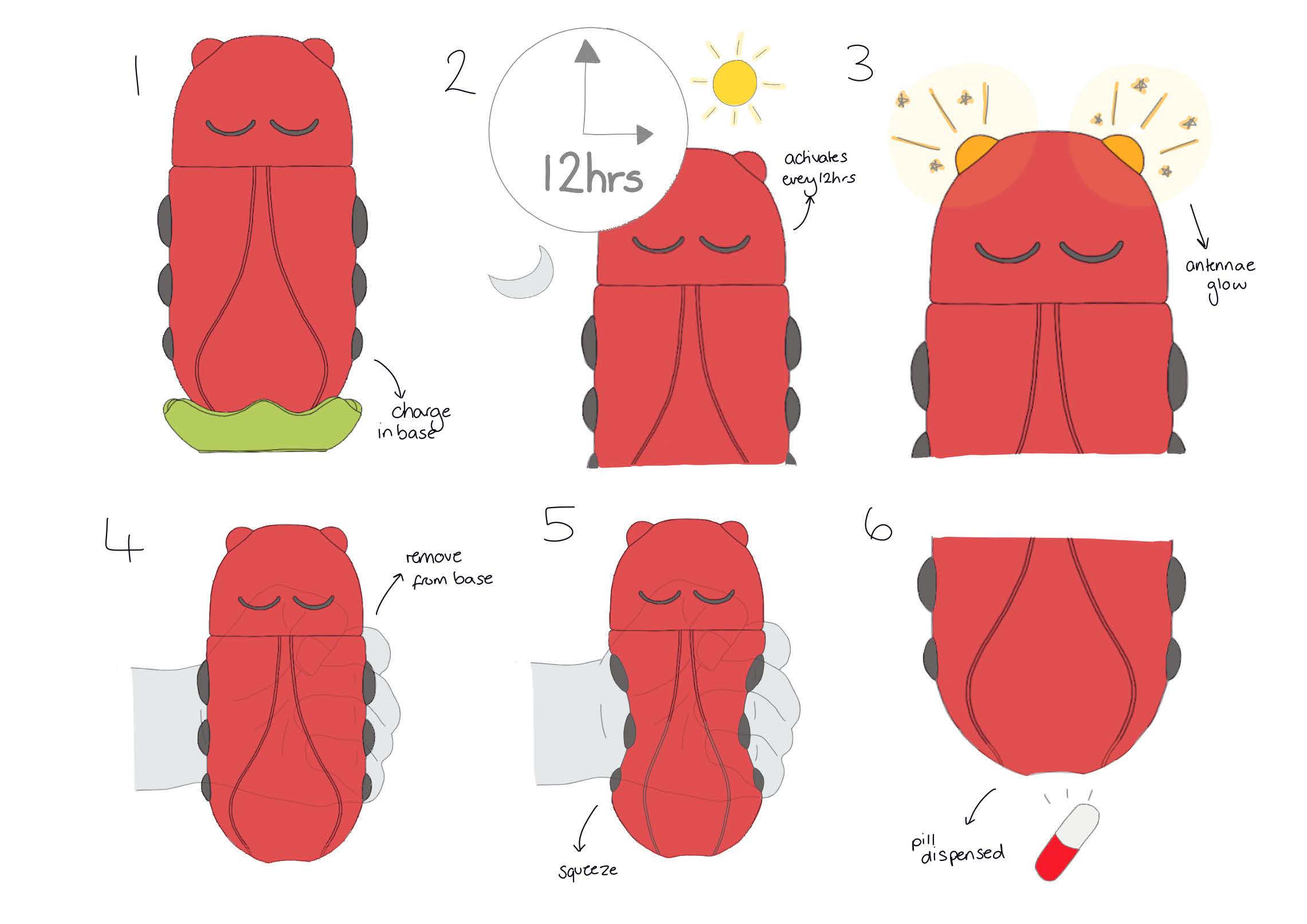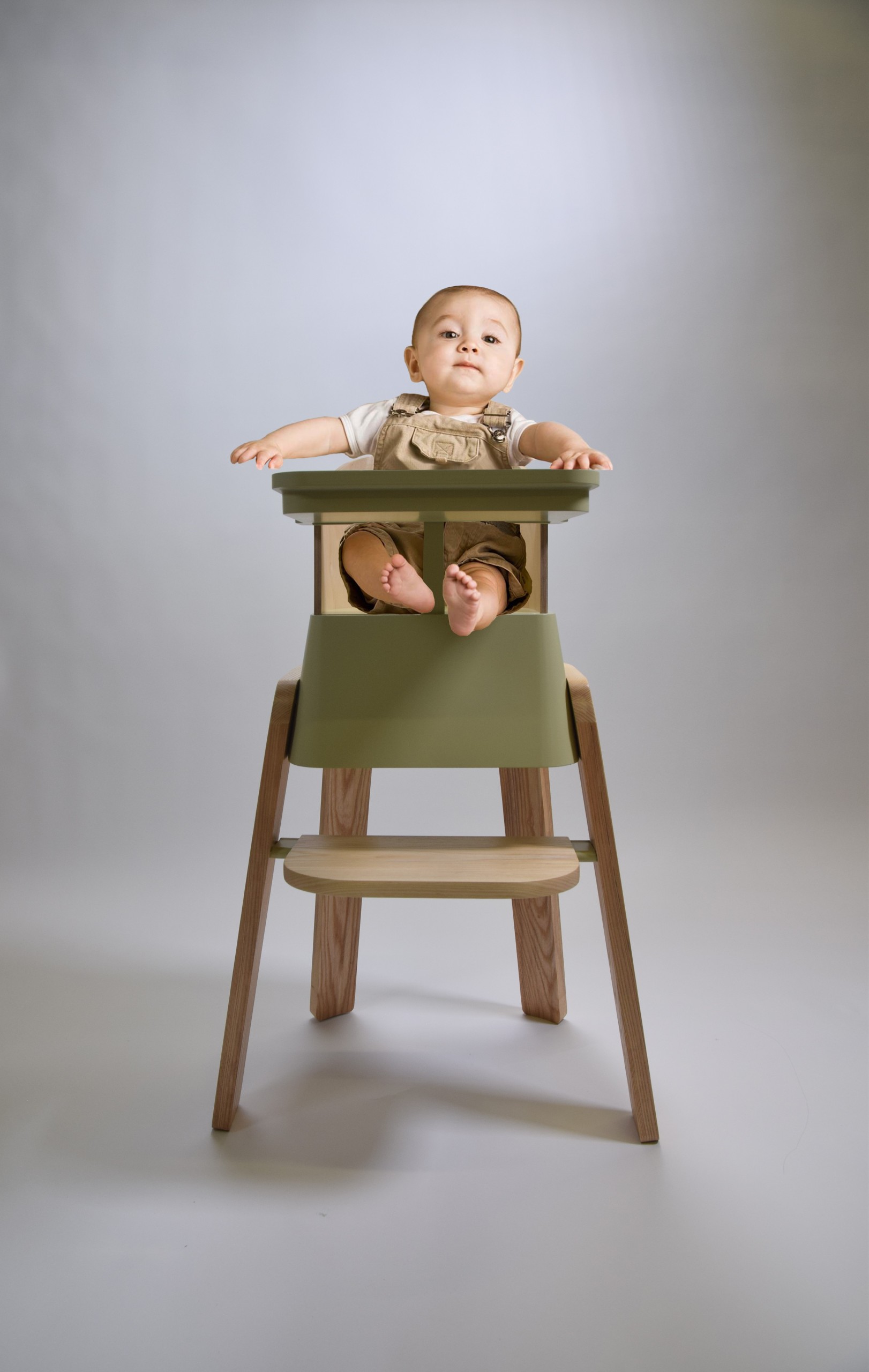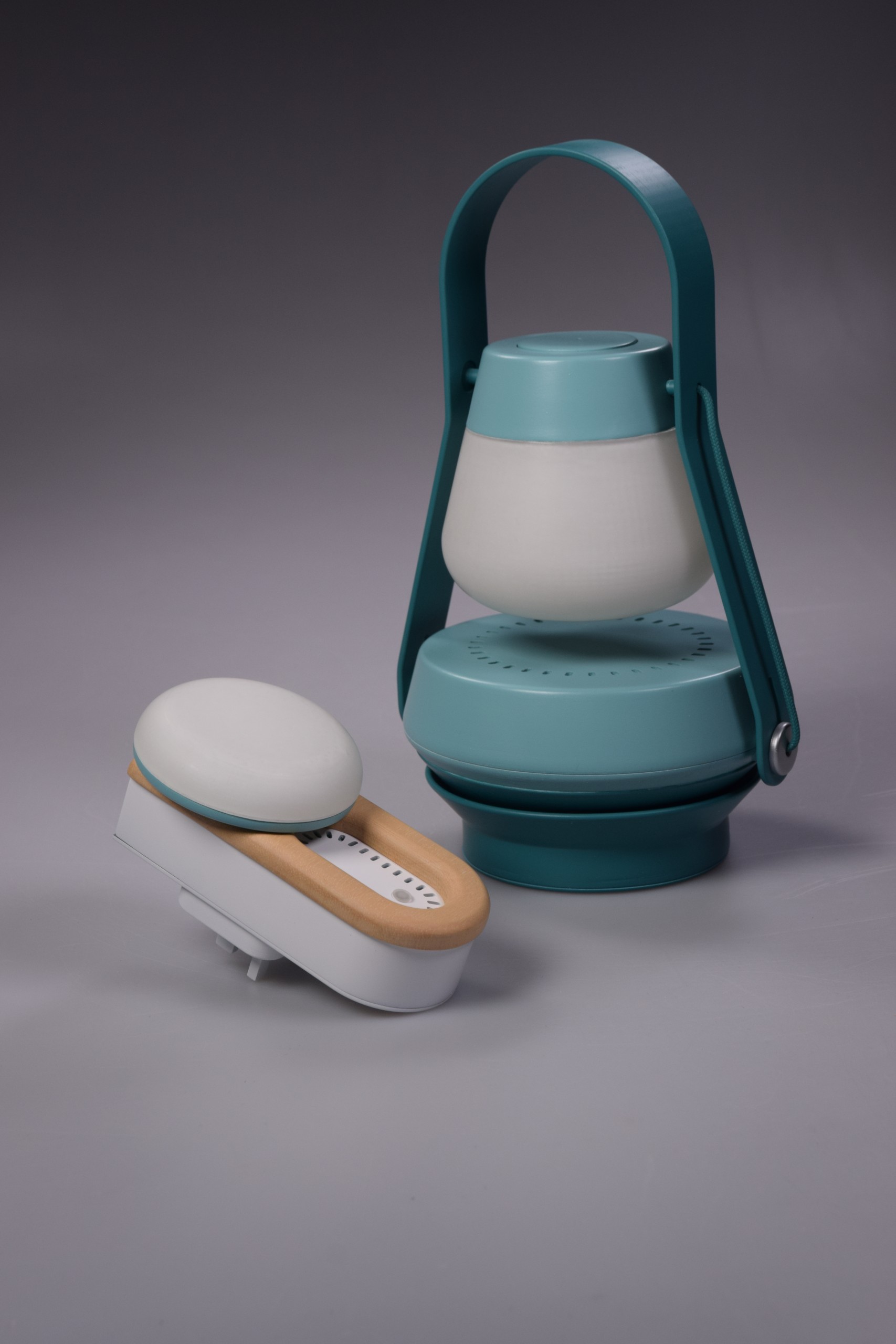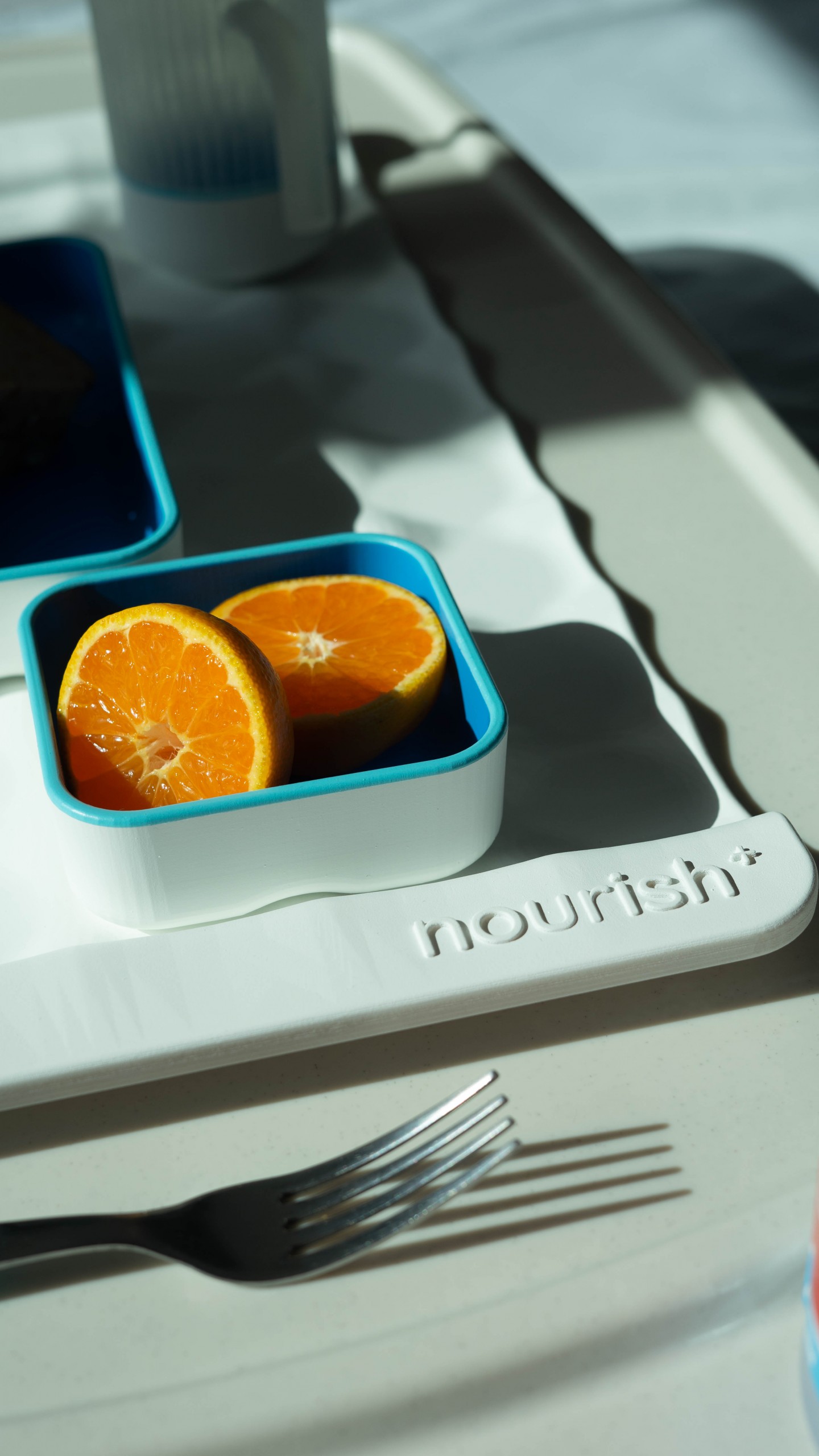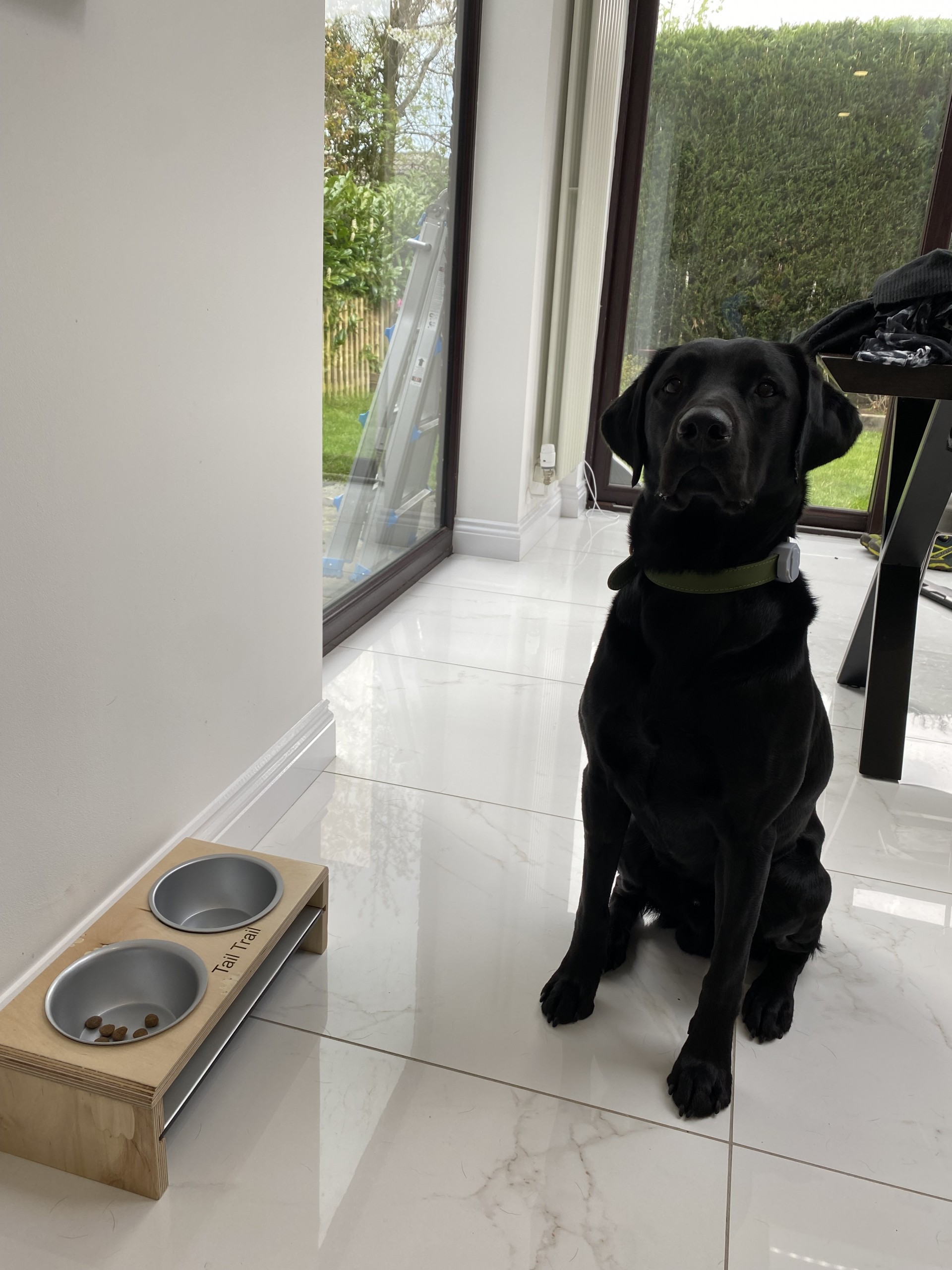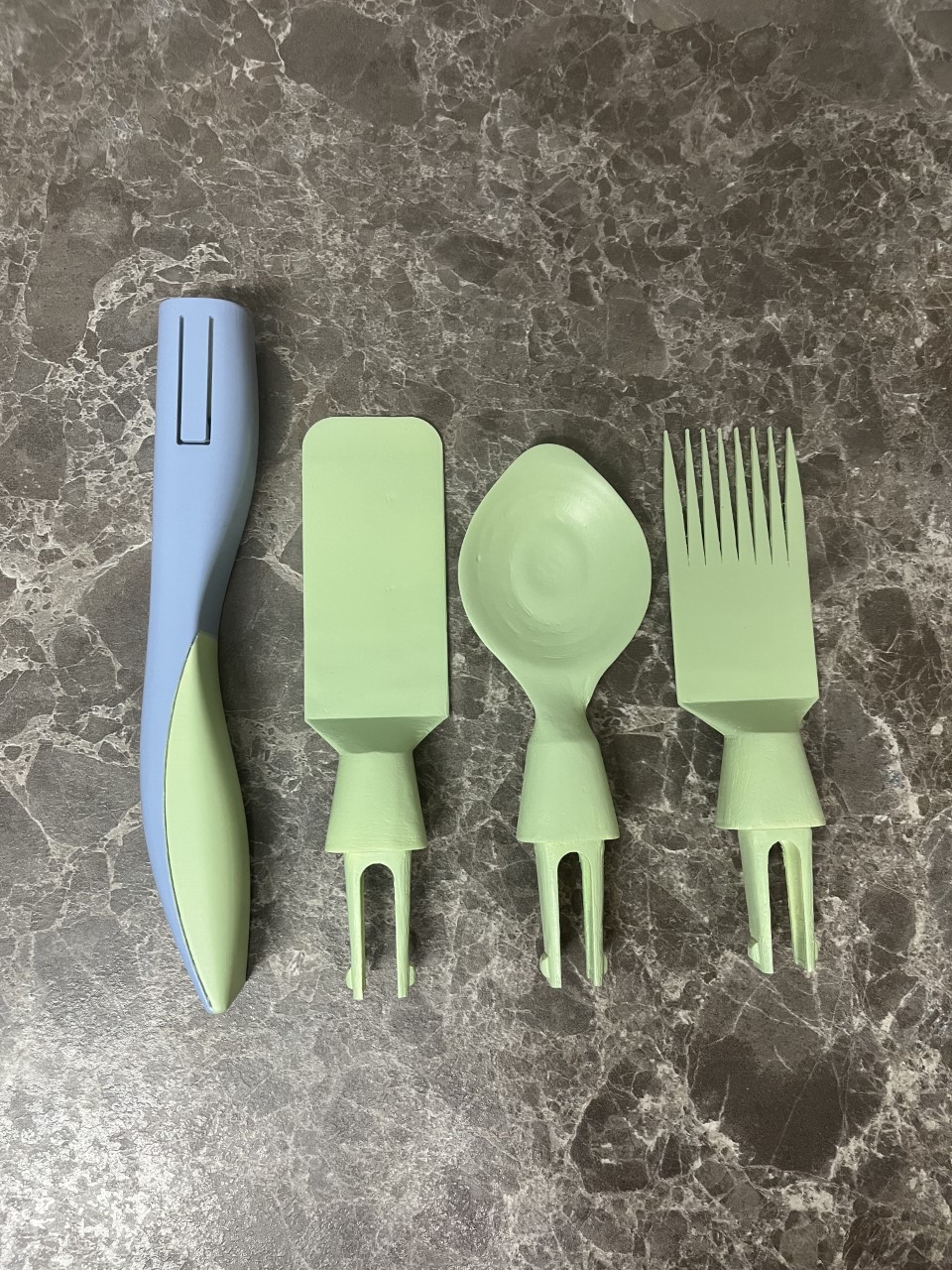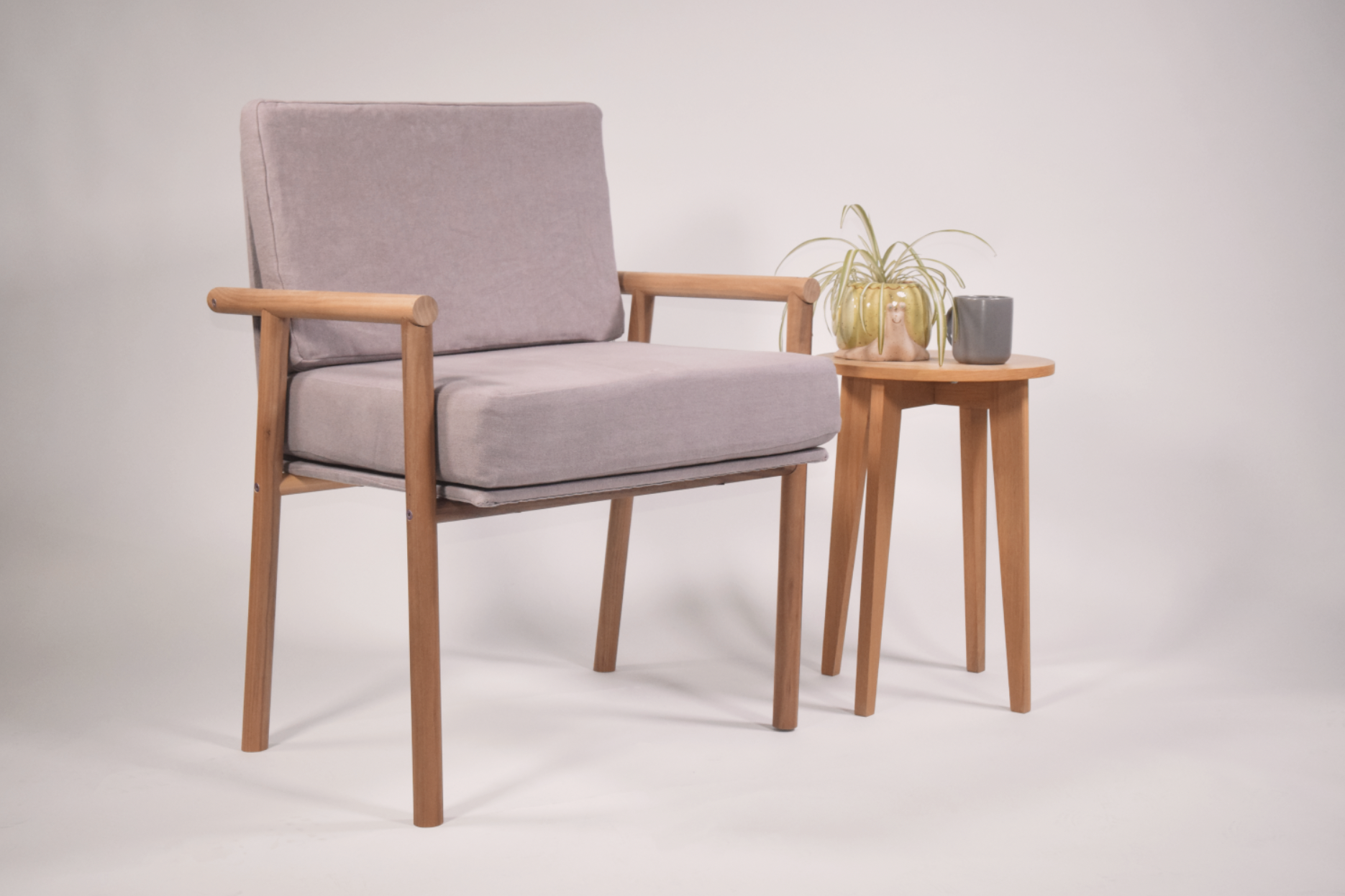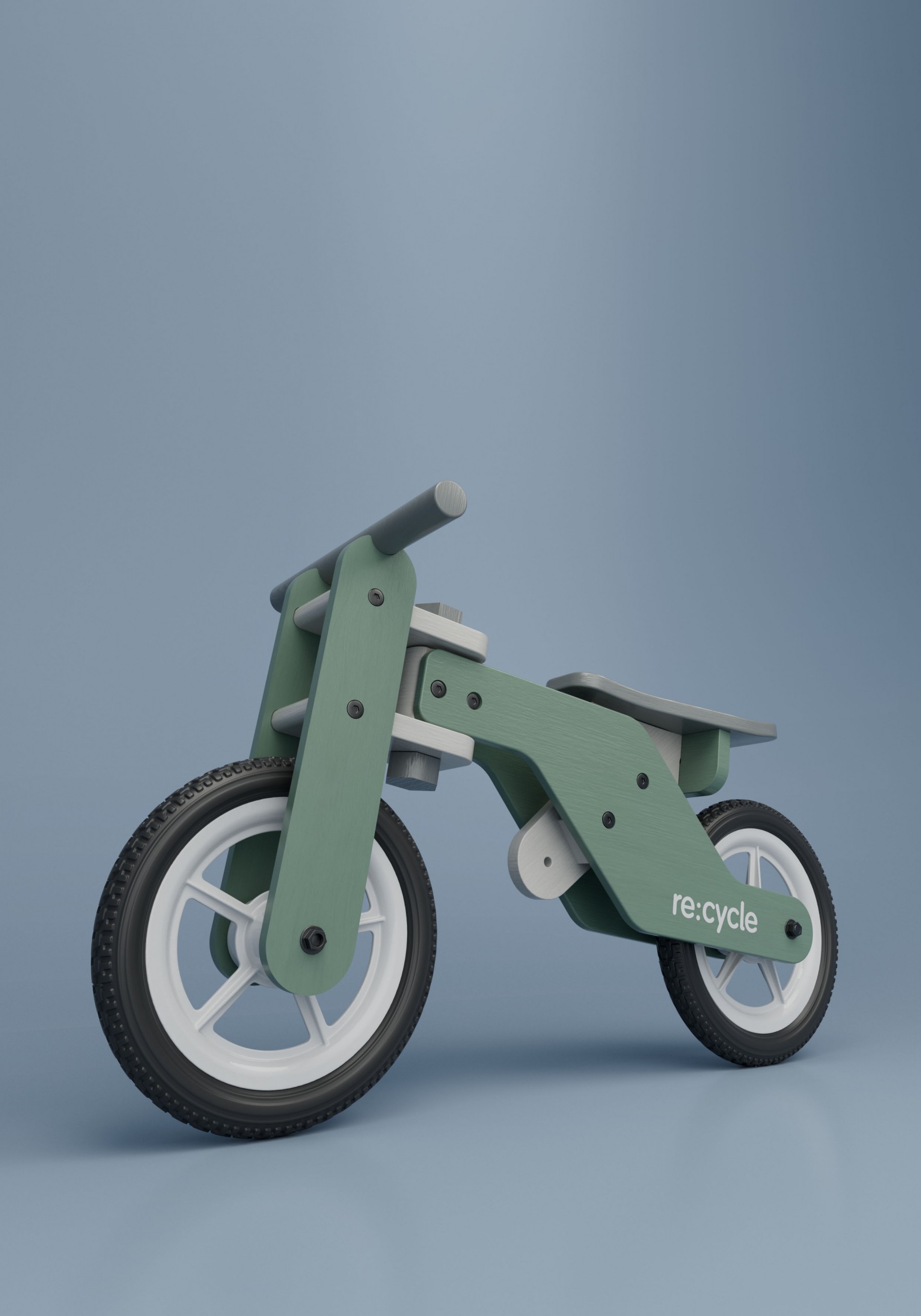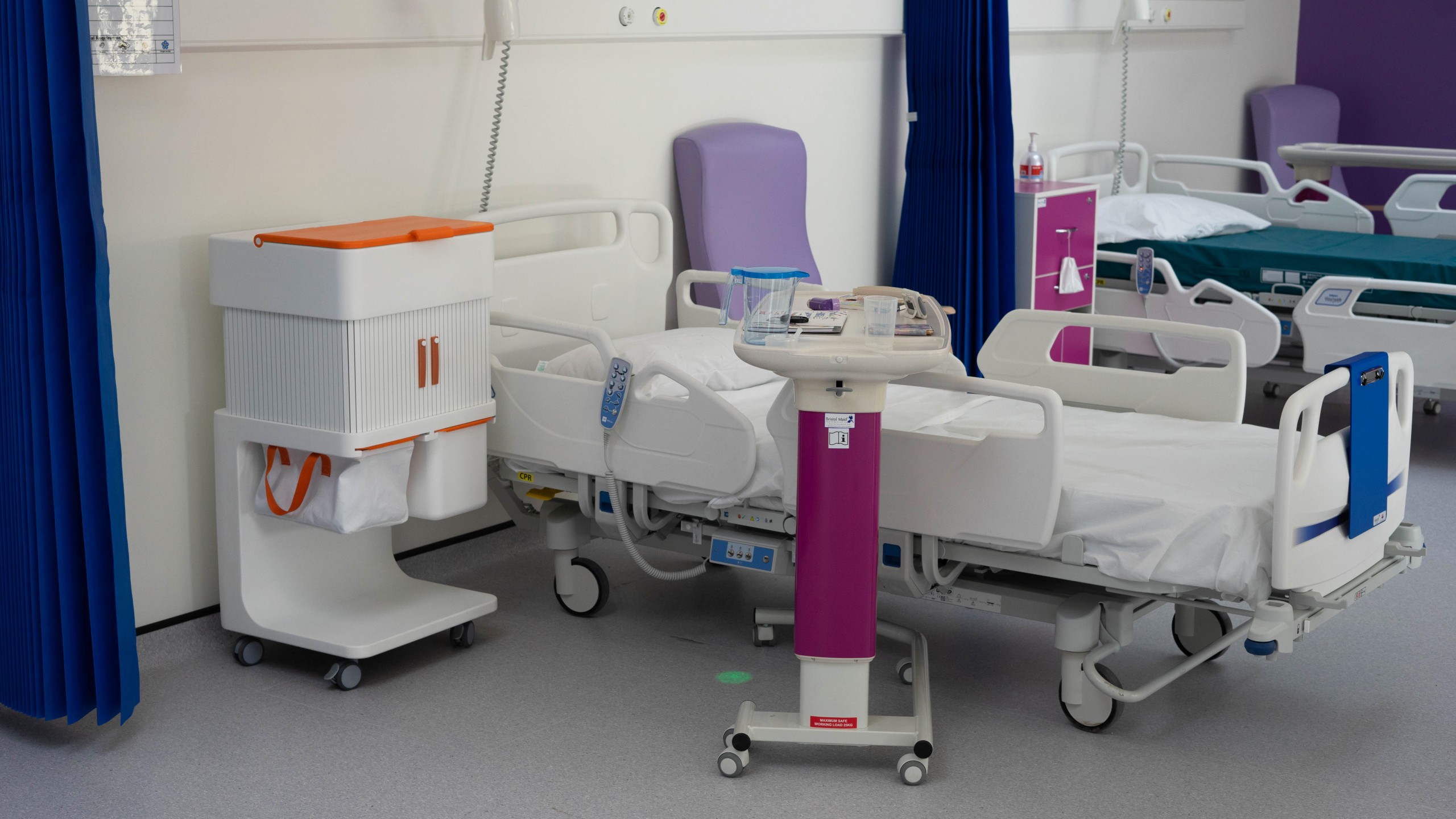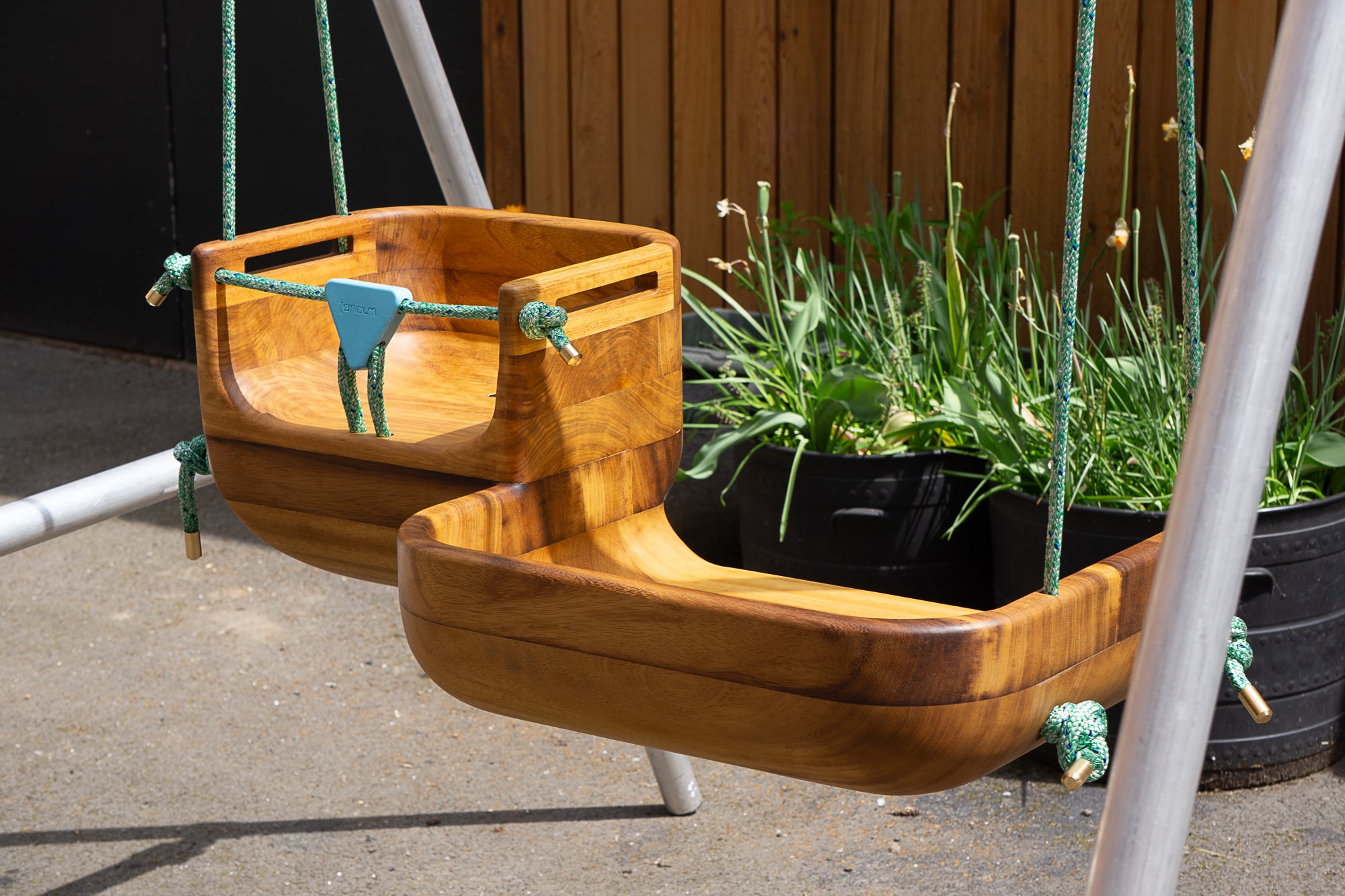
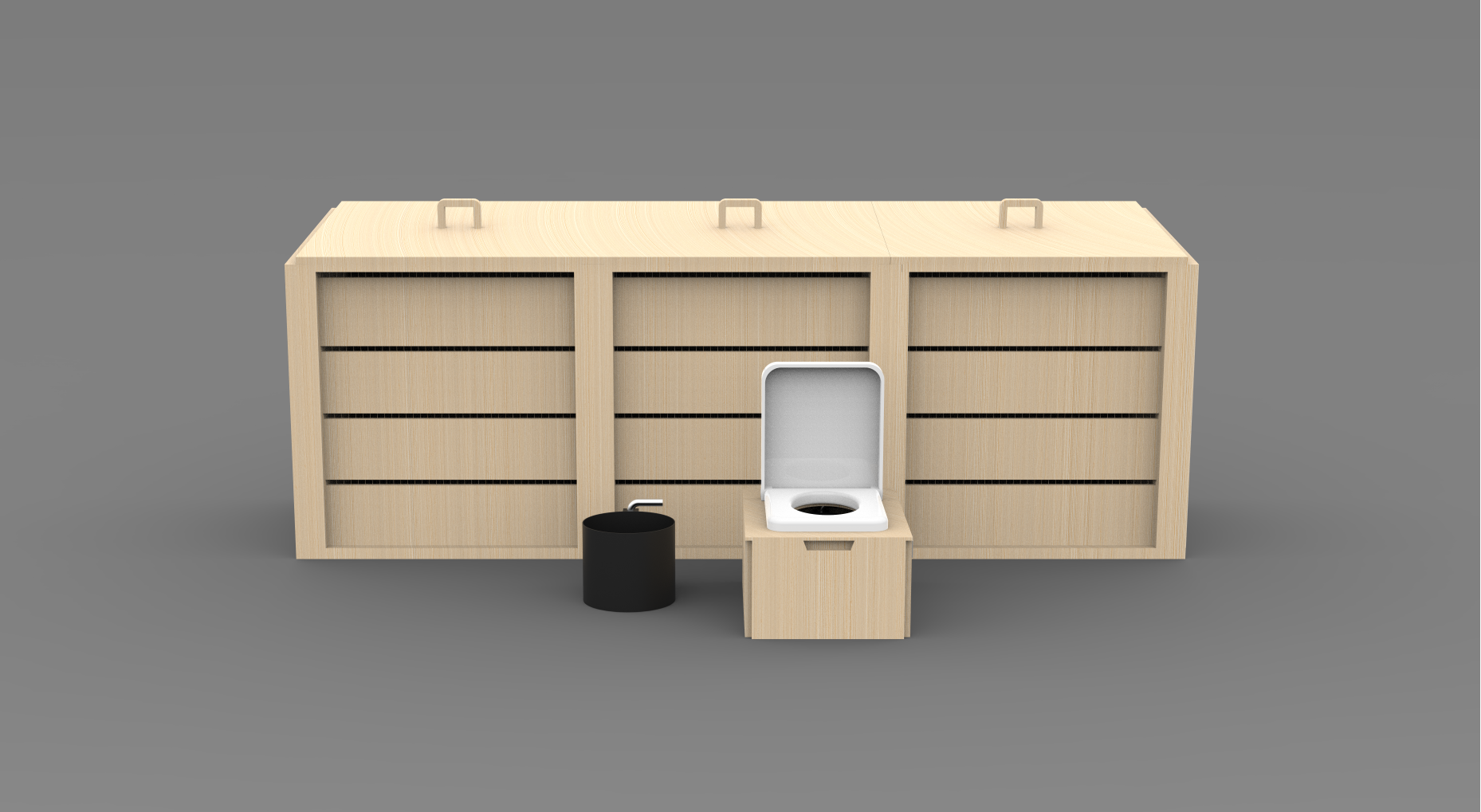
With 2 billion people worldwide without a ‘decent’ toilet (as defined by WaterAid as one that is “safe, clean, and private”), Oscar Hannant has designed a system which improves sanitation and reuses human waste to aid those living off subsistence farming. Lack of a decent toilet is a contributing factor to the 525,000 children under the age of five who die from diarrhoea every year. Of the two billion people without access to a decent toilet, most reside in rural areas, deriving their livelihoods from subsistence farming. Not only are subsistence farmers likely to lack a decent toilet but will also face other risks to their livelihoods if their crops fail.
The Enrich Composting Toilet separates and collects urine and faeces in a safe, sanitary manner and allows the transfer of the solid waste into a compost bin. A three-bin system is employed so that when all three bins are full, the first is ready for emptying and is suitable for use on crops. The urine is stored in containers where it is aged until it is also ready for use. By using waste on crops, the crop yield increases. Low-cost manufacturing processes, combined with accessible materials, allow the Enrich Composting Toilet to be produced in the target developing countries, removing the need for international shipping. Not only does the toilet improve sanitation, but also benefits users by increasing crop yield, allowing the toilet to be multi-purpose in its function. Whilst the design is simple, the benefits to the user are far-reaching, and the product offers solutions to multiple problems.
